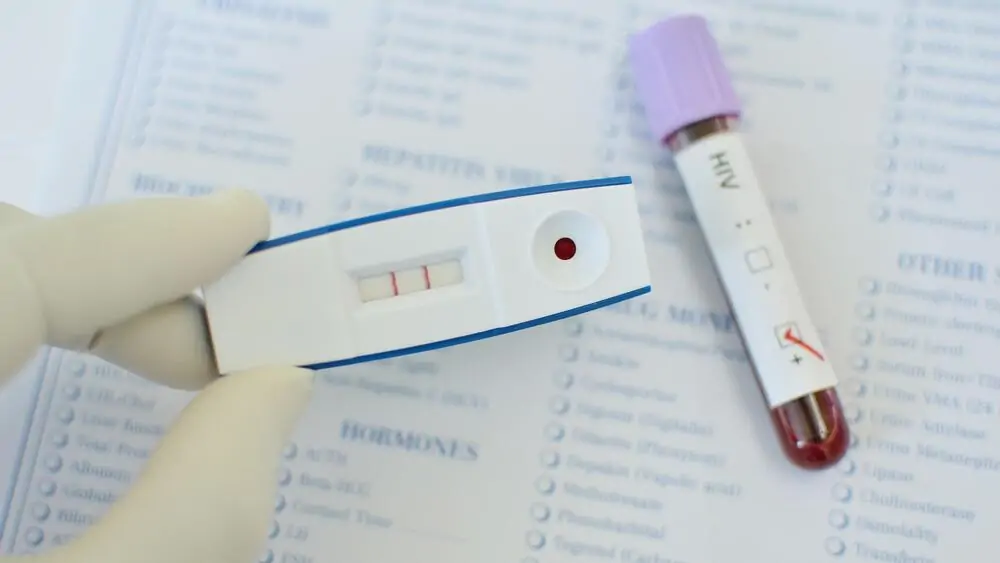
In the present era, assessing your sexual well-being becomes equally imperative as a general health checkup. Several individuals don’t know that regular STD testing plays a critical part in this regard. But it is true! This article goes deeply into the many types of STD tests available, including everything from home testing kits to full-service clinic visits, giving you the information you need to make informed decisions about your health.
Home Testing Kits: Convenience Meets Privacy
Overview of Home Testing Kits
Home testing kits represent a huge advancement in sexual health, offering a private option to test yourself without visiting a clinic. You can obtain these kits online, and they typically include everything needed to collect a sample at home, such as urine, saliva, or blood. After collecting the sample, you send it to a lab for testing for various STDs.
Pros and Cons of Home Testing Kits
Pros:
- Privacy: Testing in the comfort of your own home without having to attend a clinic.
- Convenience: There is no need to make appointments or stand in queue.
- Ease of Use: Simple instructions and pre-paid return shipping to laboratories.
Cons:
- Accuracy Concerns: Concerns: Improper sample collection might produce erroneous findings.
- Limited Counseling: A lack of direct access to healthcare specialists for urgent queries or concerns.
Best Practices for Home Testing
To obtain reliable results from home testing kits:
- Follow all directions closely.
- Ensure that samples are gathered appropriately and sent on time.
- If your findings are positive or you continue to have symptoms, consider a follow-up test at a clinic.
Clinic-Based Testing: Comprehensive and Reliable
Benefits of Clinic-Based Testing
Visiting an STD testing clinic provides complete testing performed by healthcare specialists. These facilities offer a greater variety of testing, including sophisticated diagnostics not found in home kits.
What to Expect at a Clinic
- Assessment: A healthcare physician will choose whether tests are necessary depending on your sexual history and symptoms.
- Sample Collection: Professional collection of blood, urine, or swabs
- Immediate Support: Access to guidance and treatment options immediately following testing.
Choosing Between a Clinic and Home Testing
When deciding between home and clinic STD testing types, consider the following:
- The degree of precision you desire.
- Your level of comfort with self-management versus professional administration.
- The exact STDs for which you need to be tested.
Understanding the STD Testing Process

Pre-Test Counseling:
Pre-test counseling is a vital stage in the STD testing process. During this step, healthcare practitioners thoroughly explain the most relevant tests, depending on individual risk factors such as age, sexual history, and symptoms. As a result, this discussion ensures that you are fully informed about the tests and what they entail. Furthermore, it helps reduce any concerns you may have about the process while also clarifying why certain tests are recommended.
Testing:
Testing entails collecting samples, which may vary depending on the suspected illness. Common ways include:
- Blood tests can reveal illnesses such as HIV, syphilis, and hepatitis.
- Urine tests are commonly used for chlamydia and gonorrhea.
- Swabs can be obtained from the genitals, throat, or rectum to identify illnesses such as herpes and HPV. These samples are then sent to a lab and tested for STDs.
Post-Test Counseling:
Post-test counseling is crucial after completing examinations. During this step, healthcare providers will discuss the results with you. If an infection is discovered, they will discuss various treatments and advise you on how to manage your health going ahead.
This session also provides a chance to discuss ways to prevent future STDs and the need to tell recent partners if they are at risk of being infected. This stage is critical for maintaining not just your own health but also the health of those in your community.
The Role of Technology in STD Testing
Advances in technology have substantially improved the STD testing process, making it more accessible and efficient than ever before. Users may now make appointments online, follow their test results in real-time, and chat with healthcare specialists remotely from the comfort of their own homes.
Furthermore, smartphone apps and private patient portals provide quick access to health information, enabling people to manage their sexual health discreetly. These advances not only increase convenience but also encourage more individuals to get tested, which helps prevent the spread of STDs through early detection and treatment.
The Importance of Regular STD Testing
Regular STD testing process is suggested for
- Those who have several sexual partners.
- Those who do not regularly use protection.
- Anyone who has unprotected intercourse with a new partner.
Tests for Specific STDs
Certain STDs require particular tests:
- HPV: It is frequently included in standard Pap testing for women.
- Herpes: During outbreaks, herpes is diagnosed via blood tests or swabs.
- HIV: Rapid testing is available, with findings as soon as 20 minutes.
Take the Next Step: Choose Health
Understanding the many types of STD testing and participating in frequent testing is critical to maintaining your sexual health. This proactive approach guarantees you receive the care you need to be healthy and prevent the spread of STDs.
Advanced Urgent Care of Pasadena offers private and thorough STD testing services to residents of Pasadena. Prioritize your health by scheduling a test at Advanced Urgent Care of Pasadena now. Taking responsibility for your sexual health is a proactive step toward a better future.

